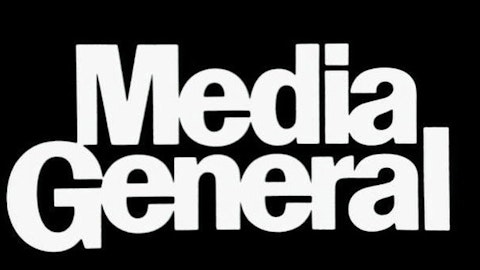Whether you are a professional investor, a news junkie, or an amateur historian, The Washington Post Company (NYSE:WPO) stands as the most compelling, intriguing, and perplexing media company right now in the world, hands-down.
What we are observing is the transformation of not merely a company — but of an entire industry. This is utterly historic.
The Post bumped and meandered along for years, looking like just another beaten-down newspaper enterprise, groping for a solution to its advertising and new-media challenges.

Then, seemingly out of nowhere, Jeff Bezos, the billionaire head of Amazon, stepped in and announced that he had taken control of the beleaguered but still highly prestigious company.
Bezos agreed to purchase the Post’s newspaper-publishing entities, which encompass the flagship Washington Post property as well as the Express newspaper and Greater Washington Publishing, for roughly $250 million.
Wall Street threw its initial support behind the new owner. The Post’s stock reached five-year highs after the company announced the sale to Bezos.
The Graham family had controlled the Post for decades, but the paper’s fortunes suffered as the newspaper industry had trouble grappling with the decline in advertising revenue over the years and the advent of the digital revolution in the media and elsewhere.
“This divestment makes sense for The Washington Post Company (NYSE:WPO) and enhances the potential value of the company going forward because the newspaper publishing business has become increasingly unprofitable,” the Fool’s Anh Hoang pointed out in a recent piece.
What is Bezos’ game plan to turn around a struggling enterprise, anyway? This is now one of the hottest parlor games going on currently in both the media and the Beltway circles.
The New York Times reported on Bezos’ initial visit in September to the Post newsroom, quoting Bezos as saying: “We’ve had three big ideas at Amazon that we’ve stuck with for 18 years, and they’re the reason we’re successful: Put the customer first. Invent. And be patient.”
While media observers have been wondering what Bezos will do with his shiny new investment, the highly successful entrepreneur gave a strong indication of his business strategy for the Post.
Bezos declared: “If you replace ‘customer’ with ‘reader,’ that approach, that point of view, can be successful at The Post, too,” the New York Times reported.
Clearly, Bezos intends to shake up the business side of the Post — and, by extension, the way the tradition-bound newspaper industry has been conducting its affairs for decades.
Bezos is stepping into a cauldron. From 2010 to 2012, the newspaper industry’s operating loss rose to $53 million from $11 million, underscoring the dislocation in the troubled business. Like many companies, the Post put into practice cost-saving moves — by closing news bureaus around the world, for instance — but it still couldn’t compensate for the trends of falling advertising and circulation results.
As it stands right now, the Post has merely two operating businesses — cable television and TV broadcasting — that have produced sustainable profits. TV broadcasting represented some $192 million in profits.
Perhaps Bezos’ biggest business challenge will be returning the luster to the company’s Kaplan education unit. Over the past three years, Kaplan’s revenue has tumbled more than $600 million, undermined by such new worries as tougher U.S. oversight of for-profit universities since 2010 and considerable dropout rates and student-loan defaults.
Last year alone, Kaplan shed more than $105 million because of goodwill factors of up to about $112 million associated with its test-prep operation. Kaplan’s flagship, the higher-education segment, suffered the most. But as Hoang’s piece pointed out, Kaplan International’s revenues have steadily gone up, to $764 million from $588 million two years earlier.
If Kaplan can continue to tap markets that welcome an infusion of U.S. expertise — such as the United Kingdom and even China — the foreign market looks like a prime expansion area for Kaplan.
Ultimately, what makes the Bezos acquisition of the Post so gripping is the tantalizing prospect that a non-media maverick can find a way to create profits and breathe life into something that has been as moribund as a newspaper enterprise. Yes, the Post has a great brand name in journalism — thanks, as ever, to its legacy of busting open the Watergate investigation of President Richard Nixon in the early 1970s.
But the Post has not been able to come up with a business formula to capitalize sufficiently on its legacy as a great newspaper of reporting and opinions.
Not, mind you, that the Post is unique in experiencing this quagmire. Just before Bezos gobbled up the Post, investor and Boston Red Sox owner John Henry took control of the proud old Boston Globe for a mere $70 million.
Meanwhile, whether the New York Times’ management likes it or not, speculation continues to swirl that New York Mayor Michael Bloomberg, who already controls Bloomberg LP, one of the most respected news-gathering operations in the world, will try to acquire the Times not long after he leaves office on Dec. 31.
Maybe history will show that these wealthy entrepreneurs, like Bezos, helped save the U.S. newspaper industry with whatever bold initiatives they can concoct. One thing is for sure: What the dynasties, such as the Sulzbergers of the New York Times and the Grahams of The Washington Post Company (NYSE:WPO), tried to do to come to terms with the digital revolution didn’t pay off.
In an era when companies like Google and Apple are helping to redefine what a media company can look like — in terms of presenting and delivering content to a large audience of people — brash new ideas are required.
This has been a tumultuous time for The Washington Post Company (NYSE:WPO). Right now, confusion abounds. Nobody can say definitively what Bezos will do, or whether his grand strategy will work.
Perhaps, just perhaps, the next time Mr. Bezos goes to Washington, mirroring Jimmy Stewart’s famous movie role, he will be greeted as a conquering hero.
The article Washington Post Joins the 21st Century originally appeared on Fool.com and is written by Jon Friedman.
Fool contributor Jon Friedman has no position in any stocks mentioned. The Motley Fool recommends Amazon.com, Apple, and Google. The Motley Fool owns shares of Amazon.com, Apple, and Google.
Copyright © 1995 – 2013 The Motley Fool, LLC. All rights reserved. The Motley Fool has a disclosure policy.





